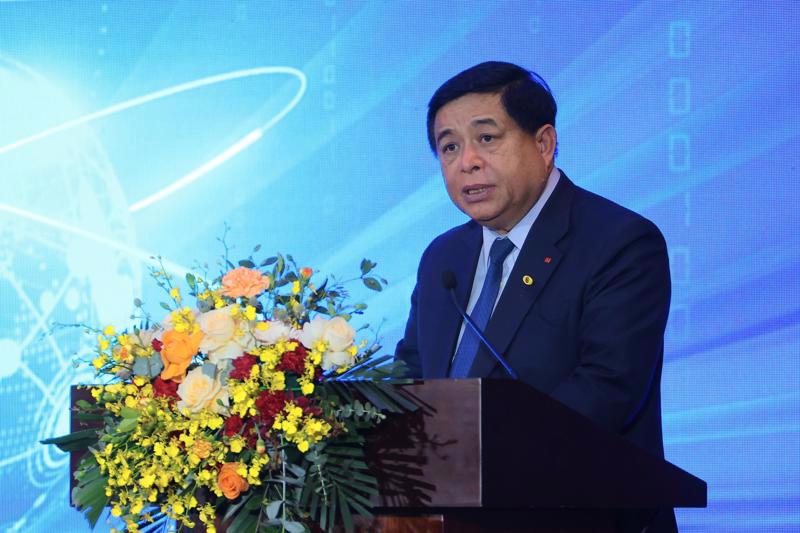The Government has identified science, technology, innovation (STI), and digital transformation (DT) as the shortest path and a vital element for Vietnam to achieve its aspiration of rapid, sustainable development, becoming a developed, high-income country by 2045.
Deputy Prime Minister Nguyen Chi Dung made the statement at the launch of a program titled "Science, technology, innovation, and digital transformation: breakthroughs to lead the country into an era of wealth and prosperity," organized by the Ministry of Science and Technology (MoST) on May 16.
To successfully achieve this strategic goal, he outlined the following tasks and solutions:
First, urgently perfect the institutional framework, create a streamlined legal corridor, and maximally unleash the potential of STI. The MoST needs to focus on reviewing and proposing comprehensive amendments to the 2013 Law on Science and Technology and related guiding documents, aiming for breakthrough and superior changes, especially in organizational, financial, and human resource management mechanisms. It is neccessary to boldly propose regulatory sandboxes (controlled experimental mechanisms) for new technologies and business models. Institutions must truly become "bridges" and "levers" for STI to deeply integrate and disseminate into all aspects of the country's socio-economic life.
Second, position enterprises at the center of the innovation system and develop universities and research institutes into strong, pioneering research entities; promote collaboration between research institutes, universities, and enterprises to accelerate the commercialization of research results and develop the STI market; and establish an effectively operating technology exchange platform.
Third, make focused investments in basic research and in mastering strategic, foundational, and core technologies such as AI, semiconductors, biotechnology, and new energy. Support the development of national "Make in Vietnam" digital platforms with international competitiveness.
Fourth, implement breakthrough policies to attract, train, utilize, and retain STI talent. There must be adequate remuneration mechanisms, a conducive working environment, and empowerment with autonomy and responsibility for scientists, especially young scientists and those working in remote, border, and island areas; meanwhile leveraging the role of overseas Vietnamese intellectuals and attracting international experts to participate in domestic STI activities.
Fifth, strongly promote the application of STI in enterprises and across socio-economic sectors.
Sixth, strengthen science diplomacy and proactively pursue deep and broad international integration in STI.
Seventh, promote the strategic role of Standards, Metrology, and Quality (SMQ) as three pillars of innovation. MoST needs to coordinate with other ministries and sectors to build a modern SMQ system that protects consumers, enhances the productivity and quality of goods, and promotes integration. SMQ must become a beacon guiding innovation.
Eighth, strengthen communication, foster a passion for science, and cultivate a culture of innovation throughout society.









 Google translate
Google translate